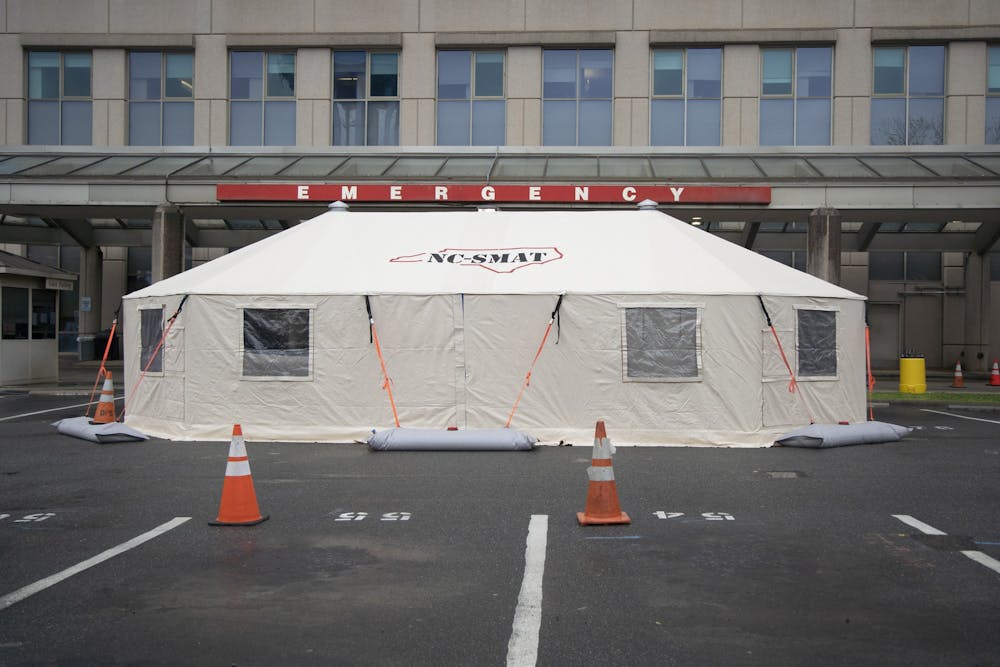One month ago in Chapel Hill, restaurants and bars were still open, large gatherings were allowed and UNC classes were operating in-person as usual.
The outbreak of COVID-19 and the resulting social distancing guidelines dramatically changed life in Chapel Hill and the UNC community since then. Among other changes, UNC's classes are now online and a statewide order from Gov. Roy Cooper directed residents to stay at home except for essential reasons.
From the first case in North Carolina to the University's residence halls closing to the recent stay-at-home order, here's how coronavirus has affected the area so far:
Feb. 28 — Gov. Cooper confirmed the first case of COVID-19 in North Carolina after a Wake County resident tested positive.
Feb. 29 — The University canceled study abroad programs to Italy. This added to existing restrictions on travel to South Korea and China.
March 4 — Two days before spring break, the University restricted travel to areas in the U.S. where a state of emergency had been declared. Chancellor Kevin Guskiewicz said returning students may be asked to quarantine for two weeks.
Guskiewicz also said students returning from countries with Level 2 or 3 travel advisories had been asked to quarantine away from campus for 14 days.
March 10 – Gov. Cooper declared a state of emergency in North Carolina. There were seven presumed cases of COVID-19 in the state at the time.
March 11 — The University announced it would extend spring break by a week and then move to remote instruction indefinitely. The announcement from Guskiewicz said campus would remain "open and operational," including residence halls.




